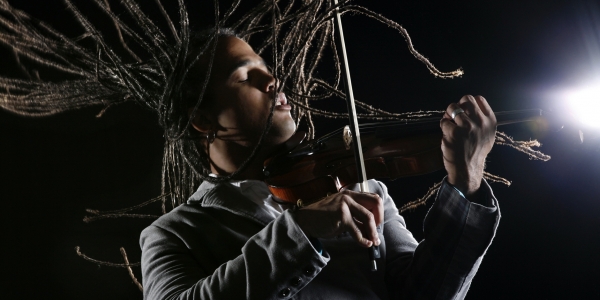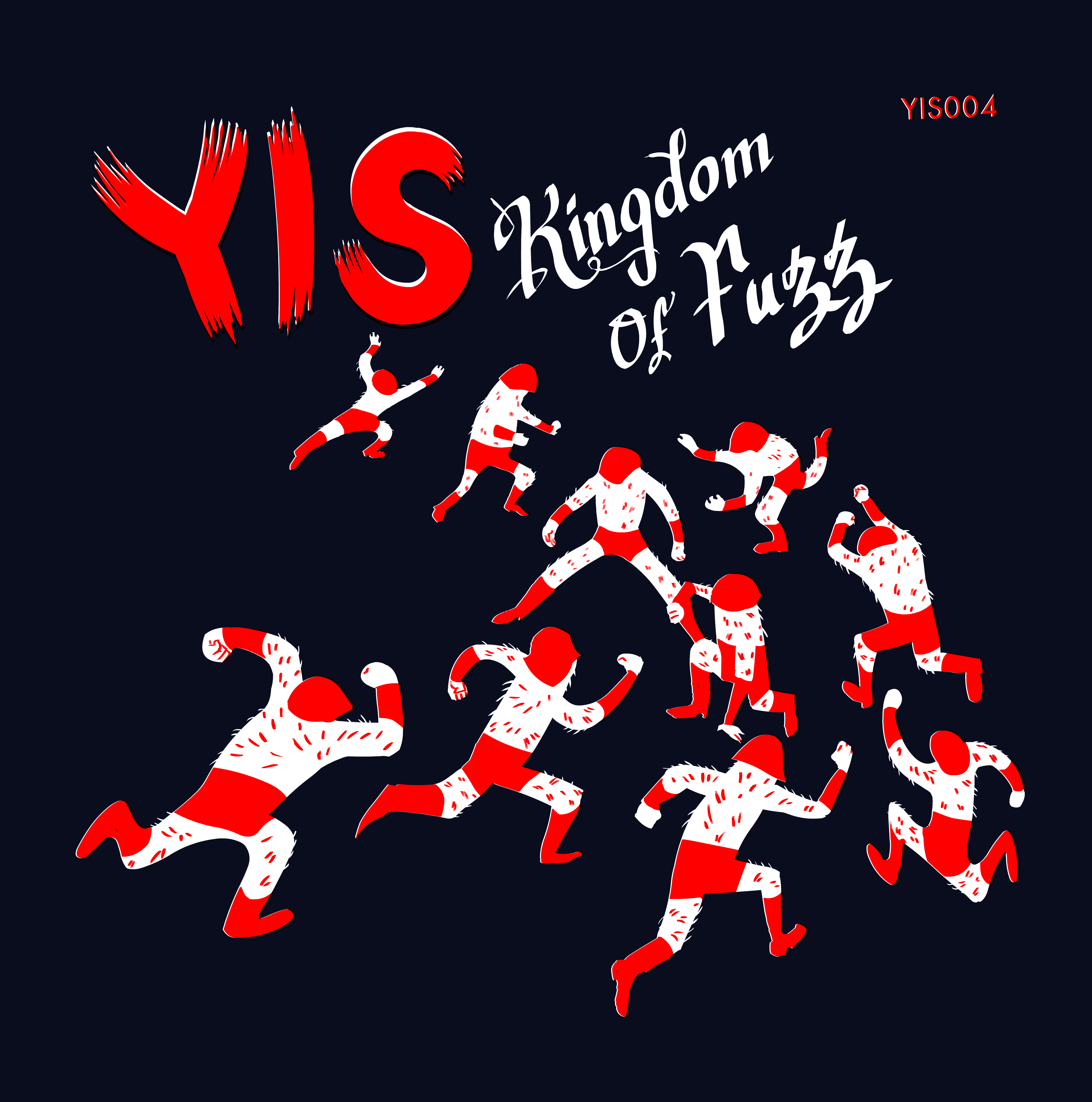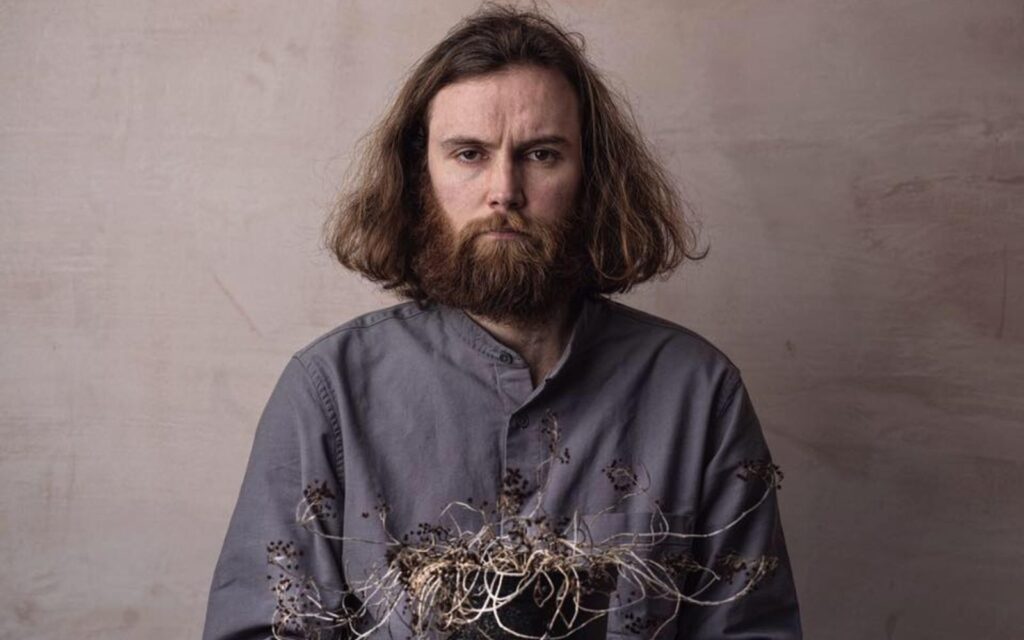There was a time when saxophone was the weapon of choice for curious collaborations, but these days you’ll find the string section taking centre stage, and none more fascinating than the work of violinist and composer DBR (Daniel Bernard Roumain).
There was a time when saxophone was the weapon of choice for curious collaborations, but these days you’ll find the string section taking centre stage, and none more fascinating than the work of violinist and composer DBR (Daniel Bernard Roumain).
DBR has been touring with the globe creating music with a wide array of musicians from symphony orchestras to DJs on and off for 25 years now. Things have just got a little more complicated with his now 20 month old son joining the entourage, but he doesn’t see himself stopping touring anytime soon.
"I don’t really have a choice. I mean, it pays the bills. I enjoy it. I don’t want to do it forever but it’s a nice balance, for sure," he says. At DBR’s level, there are a few things he could do to pay the bills. He’s clearly in demand as a performer, having performed with Lady Gaga, amongst others. It seems possible that if he wanted to stop touring, he could sit in a room and write movie scores. Live performance holds a certain allure though. "I don’t love everything about it, but I do enjoy going to different places meeting different people. It sort of helps with the music. I get a better understanding of it because I get to literally see how people respond to certain things. But it’s hard work. It’s not glamorous at all actually."
The range of responses to DBR’s projects varies around the world. "We were just in Macau, China and it’s kind of a reserved audience. They really listen, we really had to do a lot to get them going. I was just in Martinique and that was really interesting because they were so moved and it was the first time I had every played there. The audience reaction was much louder – they were clapping during the piece. It’s always different."
DBR started playing violin when he was five years old. His teacher taught him to read music, and by ten years old, he was composing. Whilst his parents aren’t professional musicians, they’re very talented theatrically. As for choosing composing over the usual pursuits of a ten year old, DBR says, "It was just a compulsion. I felt I needed to do it. I had this melody stuck in my head and I just needed to write it down and I did that and it was very exciting actually, I didn’t know what I was doing but it was all very exciting."
While the current whereabouts of these first pieces of music is unknown (DBR suspects they’re at his parents’ place) but it was the beginning of a fantastic musical career.
On his fourth visit to Australia, DBR brings with him Elan Vytal aka DJ Scientific and the queen of Haitian song, Emeline Michel. DBR is also of Haitian American heritage. He met Vytal and Michel separately on his travels around the world and stayed in touch with them until the opportunity to collaborate came up. He describes their current project: "T his is a DJ and a violinist and a singer, coming together and making a beautiful noises. It’s really about sound of the violin, the sound of Emeline’s voice and the sound of DJ Scientific’s hands and samples – so we’re all about just beautiful sound."
Michel’s song ranges from Haitian compass beat and rara with jazz, pop, bossa nova and samba, and DJ Scientific’s repertoire includes engineered hip hop beats, scratched rhythms and classical and world music sounds. The pieces are composed by DBR, who plays violin in the project, but there’s space for improvisation too.
DBR works on a range of projects with classically trained and self-taught musicians, but says that there’s no way to assume a musician’s flexibility based on their training. "It depends, I know some DJs who are actually very conservative for their culture. They want to just play the record. Conversely, I’ve worked with orchestras where we’ve done blocking and movement and light, so again it depends on the place and the people. I’m really lucky, I’ve worked with so many different artists in so many different ways. It’s very exciting.
"People are all the same but you have to speak different languages; different cultures, different social [conventions], but there’s always going to be an overlapping set of beliefs. CS Lewis talked about natural law – common laws that are essential and universal. So it’s kind of like that, I think for me, if I’m working with an orchestra, I’m really speaking a different language than if I’m working with a DJ or club dancers or a rock band, but there are overlapping principals."
While many of us have romantic views about what it would be like to compose for an orchestra, DBR says the actual experience can vary widely. "It’s really complicated. A youth orchestra is something really wonderful and beautiful. A lot of young people and they’re innocent, unjaded. [With] a professional orchestra, it all depends on the orchestra and the city. They can be really painful, really, really painful and tragic in some ways; difficult to work with. They’re just adults and music making isn’t necessarily what a professional orchestra is all about actually."
Orchestras are can be made up of talented musicians who haven’t achieved what they’d envisaged. "I think it’s a loss of control, it’s a loss of the dream. They’re jaded in some respects and disappointed in others. I think they feel taken for granted sometimes by their cities, sometimes by their audience. I’ve seen it first hand with certain professional orchestras, they’re kind of void, they’re kind of not there."
For whatever reason, instruments often found in orchestras are making their way into popular music more and more. String instruments in particular seem to be ‘in’ at the moment. "Oh yeah, it’s totally a trend," says DBR. "It’s in cycles. I can’t define it other than to say every year you know it’s going to be something different. I think the biggest change that I am aware of now is how, almost across the board, it’s much easier for solo artists break through and have careers than it is for a group. Not to say that groups aren’t breaking through and doing wonderful things – obviously they are, but I think people in general are going with the work of one artist and who they’re working with. Even in a band you have the person out front, but I think it’s interesting to see just how many solo artists are out there now. It’s also interesting as a composer – a composer is essentially a solo artist who works with other musicians, so you know that’s been actually very easy for me to find different ways of collaborating too.
"I think there was a time probably in the 60s or the 70s when it was all about bands but there was also a lot about big orchestras. Everything was bigger, every city had a huge orchestra. It was all about bands there were all these different scenes and now it’s gotten very clear and singular." Together with the rise of individual artists comes the opportunity for collaborations like this one.
DBR plays with DJ Scientific and Emeline Michel at The Melbourne Recital Centre on Thursday March 24 in The Elisabeth Murdoch Hall at 7.30pm. Tickets are $54 from melbournerecital.com.au.







